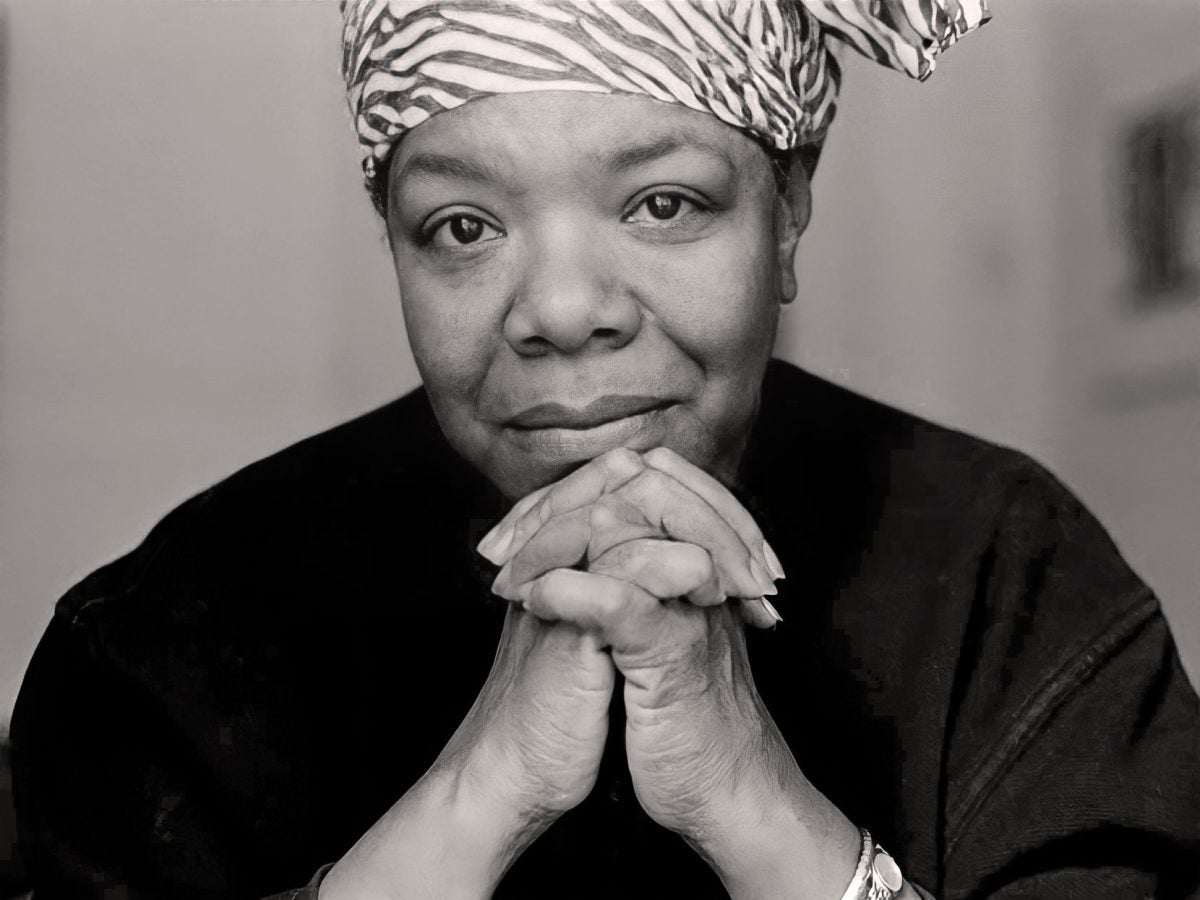
Good leaders inspire us to believe in the impossible. Great leaders inspire us to believe in ourselves. Black History Month presents a collective opportunity to celebrate the achievements, influences, and legacies of Black Americans, even as the teaching of those contributions is being challenged in classrooms across the nation.
“I am thankful for Black History Month because we take a collective moment to celebrate the history and amazing contributions of African-Americans to the society of America at large. So much of this history was, and continues to be suppressed, so celebrating it is more important now than ever,” said ASCEND CEO and Co-Founder David Richeson. “As an African-American innovator, I follow in the footsteps of those who came before me, like Dorothy Vaughan (celebrated in the film Hidden Figures), Lewis Lattimer, Jerry Lawson, and so many others. And they had so much to overcome in their time.”
ESSENCE spoke with eight business leaders from Adobe, Peloton, Paypal, and more—who revealed the history makers whose example propelled their individual paths and career trajectories. Here are the history makers that influenced the corporate leaders.
Muhammad Ali (1942-2016)
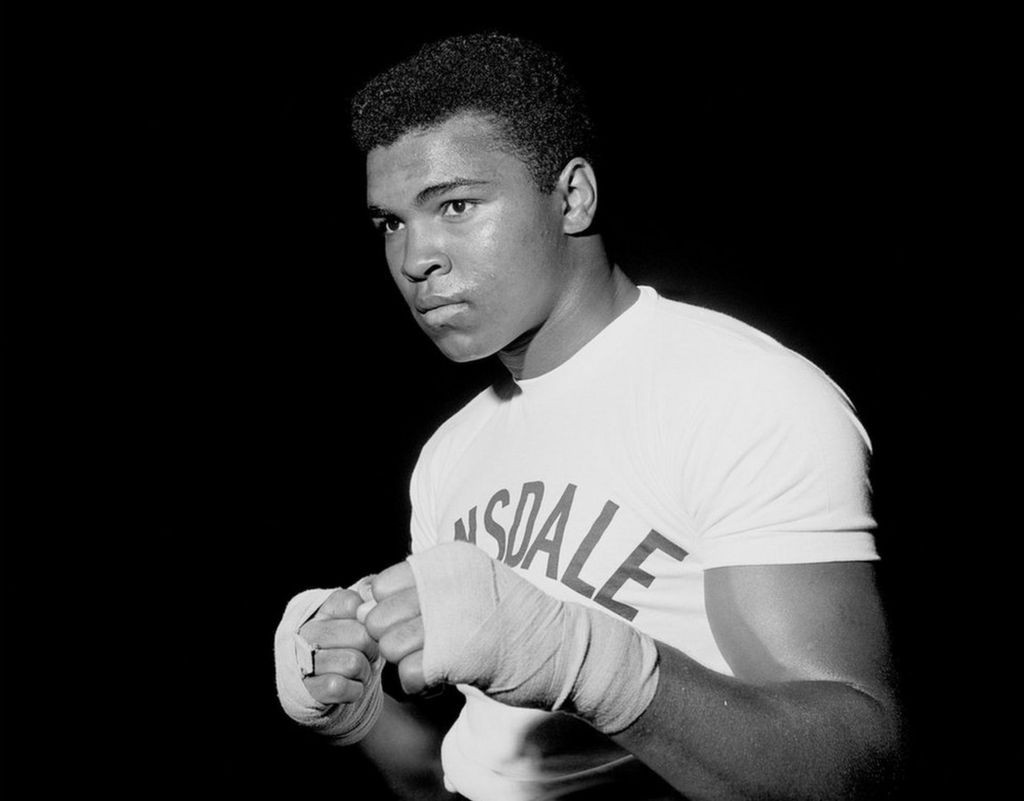
One of the most inspirational leaders to me is Muhammad Ali. As someone who values exceptionalism and Black excellence, I have always been drawn to his boxing prowess. But, more importantly, I respected his courage and willingness to sacrifice money, fame, and prestige for values. It was not just the fighting of others in the boxing ring that inspired me, but also his courageous fighting for Civil Rights that most motivated me to always stand for what I believe in, even when the consequences are loss of money, prestige, and opportunity.
He showed those to come that using your platform can amplify messages, especially against racial inequality and injustice. As a conscientious objector during the Vietnam War, he sacrificed the prime of his career and was willing to go to jail to stand up for his beliefs. Ali inspired me with his unwavering courage and determination and showed the multidimensionality of Black Americans at a time when our people were being constrained, discriminated against, and “boxed” in by American society at large.
–Ryan Williams, Founder and CEO of Cadre
Judy W. Reed (1826-1905)
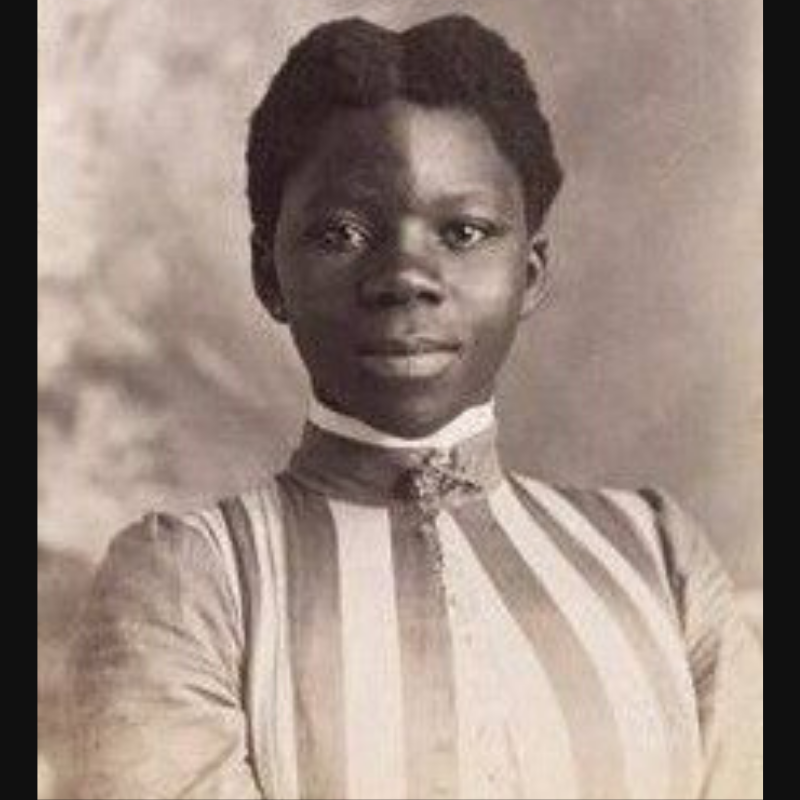
I am most inspired by Judy W. Reed, the first Black woman to receive a US patent. Ms. Reed received the patent in 1884 when most Black Americans were still fighting for the right to full citizenship. Her application for and subsequent granting of a patent is a reminder of the importance of owning your work and your worth.
–Brittany S. Hale, Interim CEO and Chief Operating Officer at digitalundivided
Ella Baker (1903-1986)
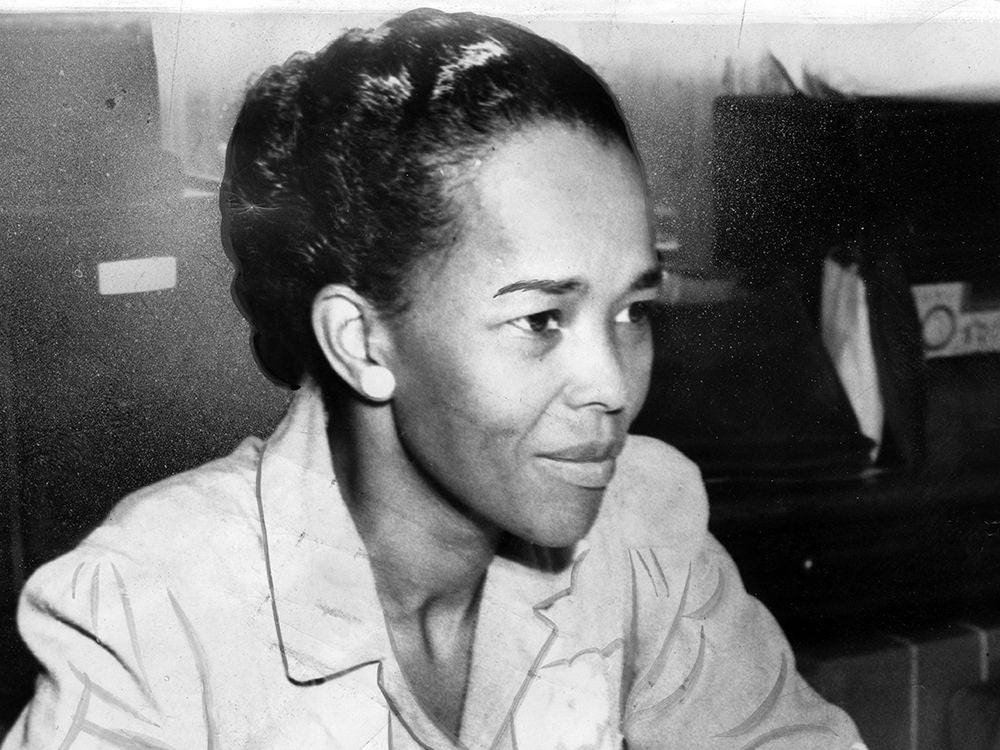
I really admire the leadership and legacy of Ella Baker. She was the ultimate servant leader in the ongoing quest for racial and economic justice, influencing the strategies of everyone from W.E.B. DuBois to MLK to the youth activists of The Student Nonviolent Coordinating Committee (SNCC). From her, I learned that community building is movement building. I try to apply her group-centered approach to all areas of my life: my work at Peloton, my service in various community organizations, and even the PTA of my kids’ school. Ella Baker taught me that justice isn’t about you or me but all of us moving forward together.
–Alia McCants, Director of ESG and Social Impact at Peloton
Nelson Mandela (1918-2013)
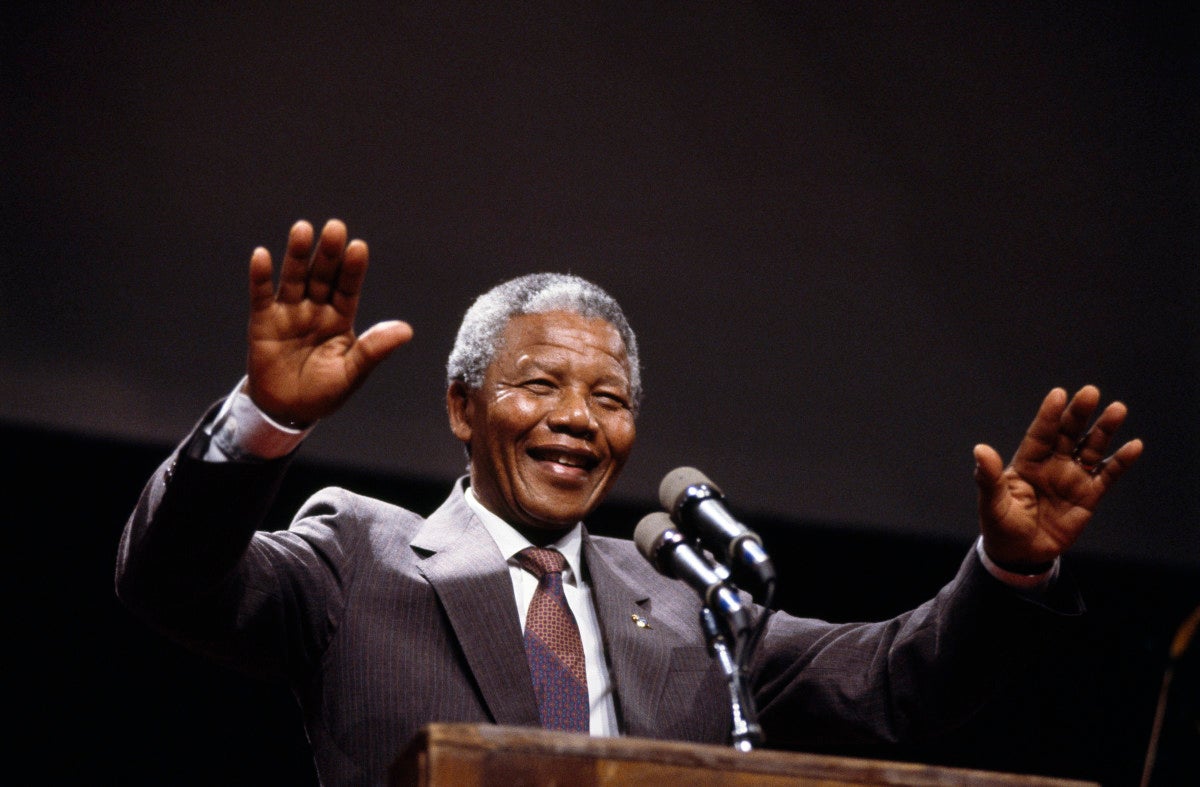
After spending 27 years in prison for fighting against apartheid in South Africa, Nelson Mandela had every reason to be bitter, angry, and vengeful against those who imprisoned him. But instead of harboring resentment against his captors, Mandela knew that engaging and partnering with them was in the best interest of post-apartheid South Africa.
What I admire about Mandela as a leader is his ability to remain steadfast in focusing on the bigger picture of advancing the greater good for South Africans by identifying racial discrimination as an impediment to that nation’s progress. Like Martin Luther King Jr. and many other significant historical figures, Mandela was a servant leader with a clear vision of where he wanted to lead others. The following quote by Mandela captures this quality:
–Kenneth Imo, Global Head of Diversity & Inclusion at Adobe
Rosa Parks (1913-2005)

For me, it is Rosa Parks, an ordinary woman who stood up for herself and others when faced with injustice and whose actions became a revolution. When you think about it, that is what the civil rights movement is all about, ordinary people who can no longer tolerate unfair treatment and speak up or take action against it. Rosa Parks’ actions serve as a constant reminder for me that any one of us can be the change we believe in.
In my career, I try to use my voice to represent those who don’t have one – those who might be disenfranchised or marginalized – and remind those in power like me to consider how we can, as business leaders, keep those voices front and center. I also talk about our obligation to ensure that our business is representative of the broader population. We are seeing some fantastic progress, but still have a lot more to do. I keep Rosa Parks on my desk at work as a reminder that I must always raise my voice against injustice, no matter how it may affect me. And when I’m having one of those days where things don’t go as planned, I ask myself, “What would Rosa do?”
–Tracey Jenkins, Senior Vice President of Human Resources, Sodexo Live!
Maya Angelou (1928-2014)
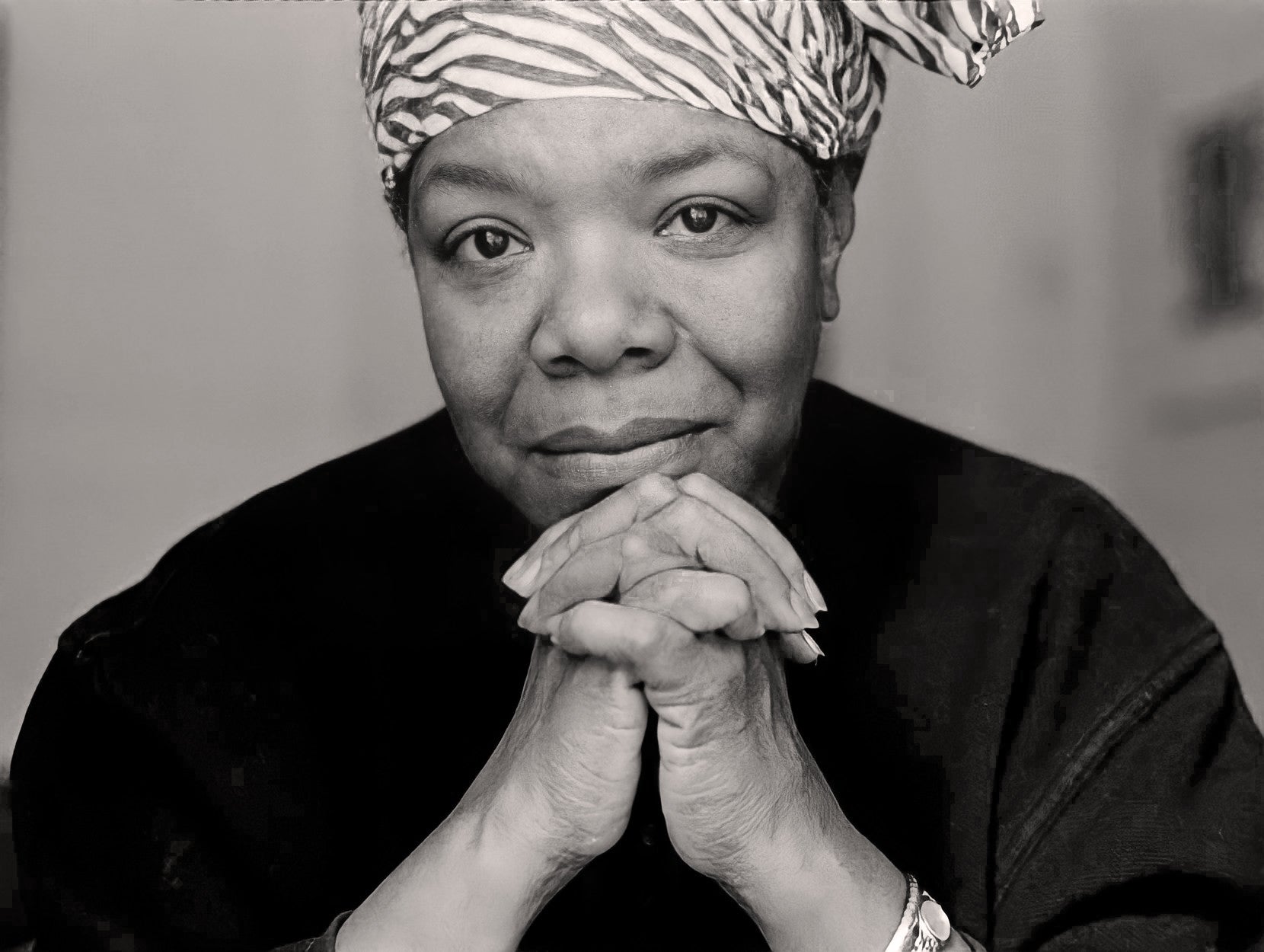
I find Maya Angelou to be tremendously inspiring. Her ability to storytell in such a powerful way, writing about her life experience in books including, “I Know Why the Caged Bird Sings” as well as “The Heart of a Woman” and “All God’s Children Need Traveling Shoes,” and several others, offered a real window into her life. Her ability to take the reader with her on the journey and become immersed in her story is a real gift. She also used her platform to advocate for civil rights for many years. I believe part of the reason she was able to advocate so successfully was because of her gift of bringing people along through storytelling. I have been inspired by watching her use this gift during her lifetime. She has taught me the importance of bringing people together and helping them see “the story” of where we are trying to go and how to get there when advocating for change- in business and life. And then, let’s not forget that she’s the first Black woman ever featured on the US Quarter– that is quite the tribute!
–Peggy Alford, Executive Vice President, Global Sales at PayPal
Michelle Obama
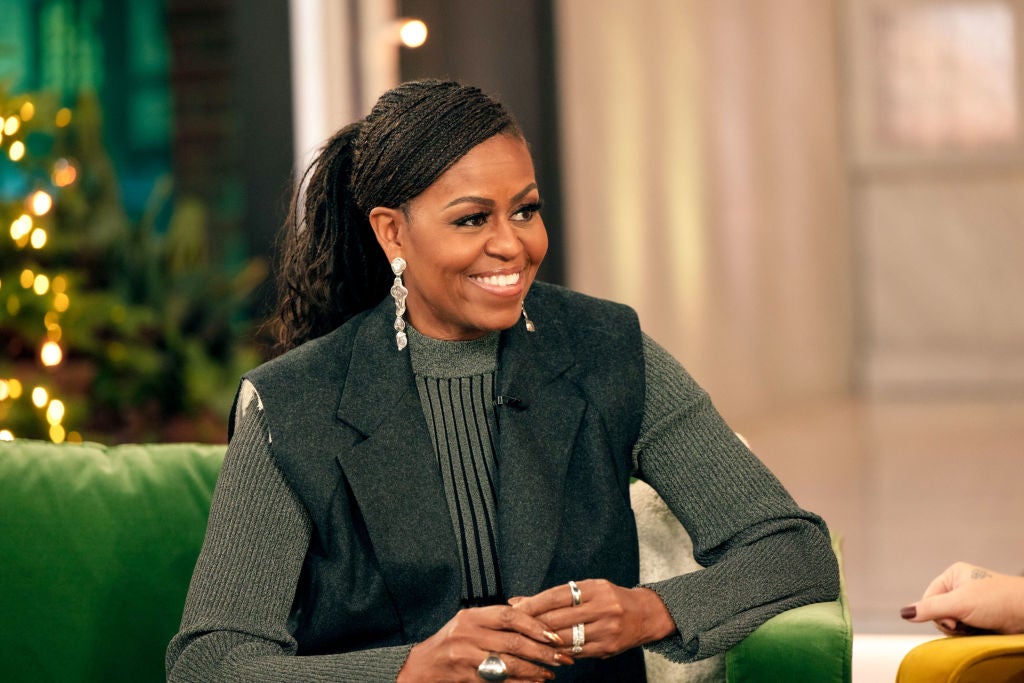
Michelle Obama mentored me many years ago when we both lived in Chicago, and she was leading Public Allies. Back then, I was a recent college graduate full of ambition and goals that may not have been practical or realistic. And perhaps because we were both Black women working in the not-for-profit sector and who went to Princeton, Michelle was willing to pour some of her coachings into me. The thing I always tell people is that the Michelle Obama you see today is exactly who she is and always was.
As a mentor, Michelle didn’t mince words or soft-sell her advice. Instead, she gave me honest and difficult feedback in a way that was also caring. I knew she was real with me because she wanted me to reach my full potential. I think that is also part of our culture, or maybe it’s the “Black Mom Code.” We set a high standard for the people we care about the most, and then we don’t let them compromise or fail. That is a very powerful kind of support to get.
–Carla Vernón, Chief Executive Officer and Board Director at Honest Company
Henrietta Lacks (1920-1951)

I am most inspired by Henrietta Lacks and her contributions to science, research, and the medical community. Although she and her family did not have a choice in her impact, her incredible cells are used in research to this day to study the effects of toxins, drugs, hormones, and viruses on the growth of cancer cells. The devastation of cancer has personally impacted my life as the daughter of a cancer survivor and losing another parent to the disease. Ms. Lacks’ cells played a critical role in developing various vaccines and have been utilized to test the effects of radiation and poisons. Her contribution to science saved thousands of lives. The irony of her death, ultimately creating many paths that allowed others to live, leaves a powerful and ironic legacy. Although her family should have had the opportunity to make an informed decision about using her cells, her life, and death profoundly altered the scientific advancement for so many people.
Her legacy has also impacted my commitment to helping people. My career journey has taken many turns, but my responsibility to help people, first as a public defender and now as a pharmaceutical industry professional, fuels my purpose as a voice for those with unmet needs and unequal access. My current role as Senior Vice President and Chief of Staff to the CEO allows me to live my purpose by leading the simplification efforts across the organization, removing barriers to help best serve our patients. The urgent need to address serious gaps in care among underserved communities is imperative now more than ever, and Henrietta Lacks’ impact on science underscores the importance.
–Wendy Short Bartie, Senior Vice President and Chief of Staff to the CEO at Bristol Myers Squibb
Comments are edited for conciseness and clarity.